Main Presentation:
Solar Eclipses
Presenter: Connor Justice
This month in preparation for the October Annular Eclipse, Connor Justice will giving an updated talk on Solar Eclipses.
Presenter: Connor Justice
This month in preparation for the October Annular Eclipse, Connor Justice will giving an updated talk on Solar Eclipses.
Presentation: The world at night is lighting up at an alarming rate. A host of ecological and social consequences comes with this rapid environmental change, but solving this problem is simple and cost effective. In this talk John will review what we know (and don’t know) about light pollution, how it affects us, and which mitigation strategies are most effective. From there he will describe an effort to revitalize the Southern Arizona chapter of DarkSky International (DarkSky International was formerly known as the International Dark-Sky Association) and the plans for regional advocacy and action in coming years.
Bio: John Barentine is the Principal Consultant at Dark Sky Consulting, LLC, and was formerly the Director of Public Policy for the International Dark-Sky Association. He earned a Ph.D. in astronomy from the University of Texas at Austin, and previously held staff positions at the National Solar Observatory, Apache Point Observatory, and the Sloan Digital Sky Survey. Throughout his career, he has been involved in educating the public about science. He is a member of the American Astronomical Society and the International Astronomical Union, and is a Fellow of the Royal Astronomical Society. The asteroid (14505) Barentine is named in his honor. His interests outside of astronomy and light pollution research include history, art and architecture, politics, law and current events.

Space Station Shot of Earth at Night. Credit: NASA
Astronomical Distances
Presenter: Doug Smith
Doug Smith will be presenting on Astronomical Distances.
Astronomer of the Month: Sir Arthur Eddington
Presenter: Pete Hermes
Pete Hermes will be detailing Sir Arthur Eddington for our ongoing astronomer of the month series.
Presentation: Walking though your high school or college hallways you’re likely to find tchotchkes, curios, and relics of the past. Good chance you’ve passed them every day and never given a second glance. In this presentation, Max Lipitz asks the question: what if you did take that second look? And what if that curio was a giant camera lens that for the past decade sat unassumingly on the 3rd floor, of the northwest corner, of the Rochester Institute of Technology, (RIT) Carlson Center for Imaging Science Building (CIS)? The scuttle bug around the center was that it was built in support of the U-2 (Dragon Lady) spy plane program begun in 1955. However, that is far from the truth and the reality is far more astounding…as Max’s talk will reveal.
Bio: Maxmillian (Max) Lipitz could best be described as a strange amalgamation of NASA obsession, photographic prowess, and insatiable curiosity. In his attempt to acquire empirical knowledge, he has accumulated thousands of useless facts over a period of decades. This has led him to be an oddball graduate of the Rochester Institute of Technologies Imaging Science Program; a highly interdisciplinary field that combines physics, math, computer science, and engineering. Whether it’s developing image processing algorithms to turn people into Simpsons characters or restoring a 31-year-old digital camera just because, Max puts his whole heart into everything he does. In the past he’s worked with Dr. Robert Kremens to develop next-generation probes (“Kremboxes”) to monitor wildfires in the thermal and visible spectrum, providing valuable data that could save thousands of lives. Currently Max works as a scientist at Tucson-based GEOST, developing ground and space based electro-optical systems.
By Erich Karkoschka






Viewing Location: Kannally Ranch House
Information: Great dark skies just north of Tucson at Oracle State Park. Star Party open to the Public. Admission cost for entrance into Oracle State Park may apply. Tucson Amateur Astronomy Association will have several telescopes for astronomical viewing. We will observe Planets, Nebulae, Galaxies, Star Clusters and lots more. Great opportunity to look through a wide variety of telescopes. Weather dependent.
For real-time updates, follow this event on the Tucson Amateur Astronomy Association Facebook Events Page (https://www.facebook.com/TucsonAstronomy/). There is generally a talk and other events also taking place. Check the Oracle State Park website for additional information. Check TAAA Facebook Page or here for any updates as we get closer.
Star Party – Saguaro National Park – East
Tucson, AZ
Great dark skies on the East side of Tucson at Saguaro National Park – East.
Star Party is open to the Public. Event is free but NPS admission fees apply.
The Tucson Amateur Astronomy Association will have several telescopes for astronomical viewing. We will observe Planets, Nebulae, Galaxies, Star Clusters and lots more. Great opportunity to look through a variety of telescopes.
Weather dependent. For real-time updates, follow this event on the Tucson Amateur Astronomy Association Facebook Events Page: (https://www.facebook.com/TucsonAstronomy/).






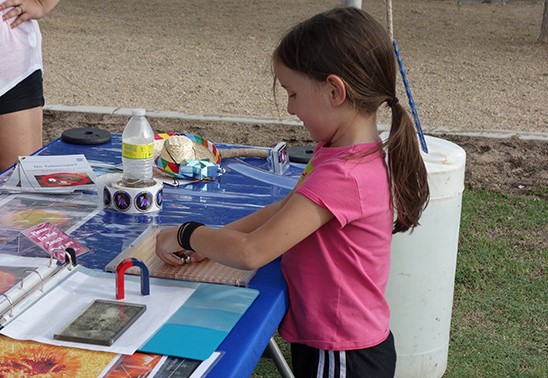
TUCSON ASTRONOMY FESTIVAL
Each year on a Saturday in March or April, the Tucson Amateur Astronomy Association hosts a family fun event during national Astronomy Day. It is held at Brandi Fenton Memorial Park (3482 E River Rd @ Ramada 1)
3 – 9 pm
Interactive Astronomy Activities include:
Solar and Nighttime Observing
Door prizes to include a Grand Youth Prize of a Small Telescope
Bring your own telescope for help using (recommend arriving late afternoon during daylight)
FREE FAMILY FUN EVENT
The 2025 event. Saturday March 22, 2024.
To get any updates as we get closer, follow our Facebook Page event at: TAAA Facebook Tucson Astronomy Festival Event
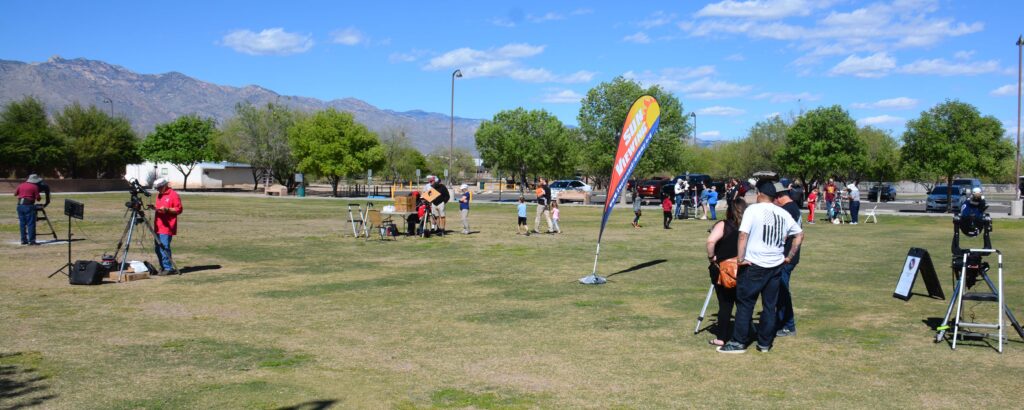
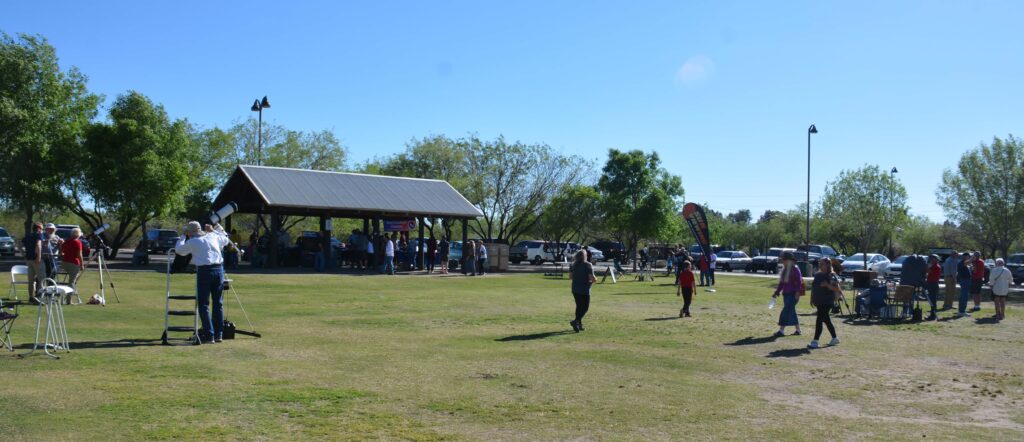
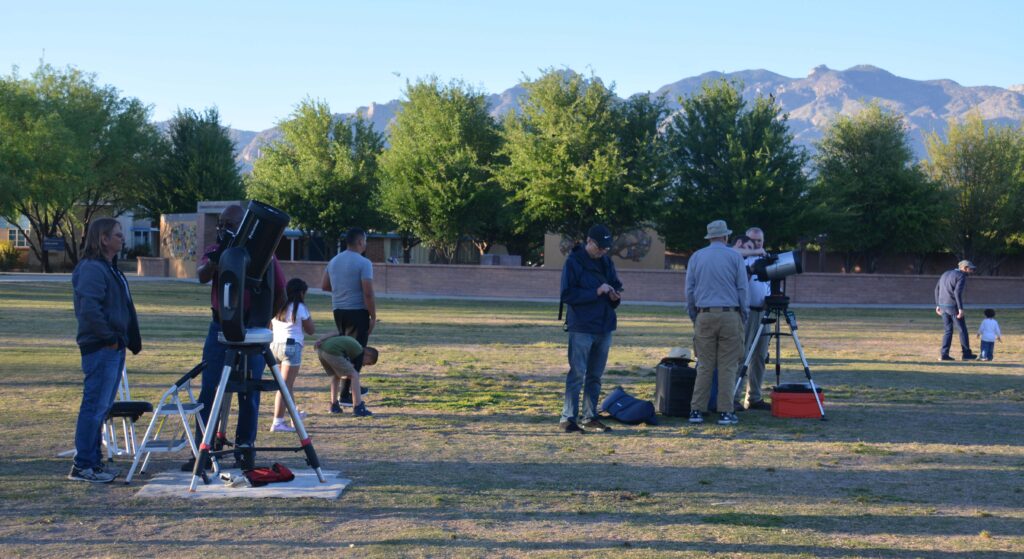
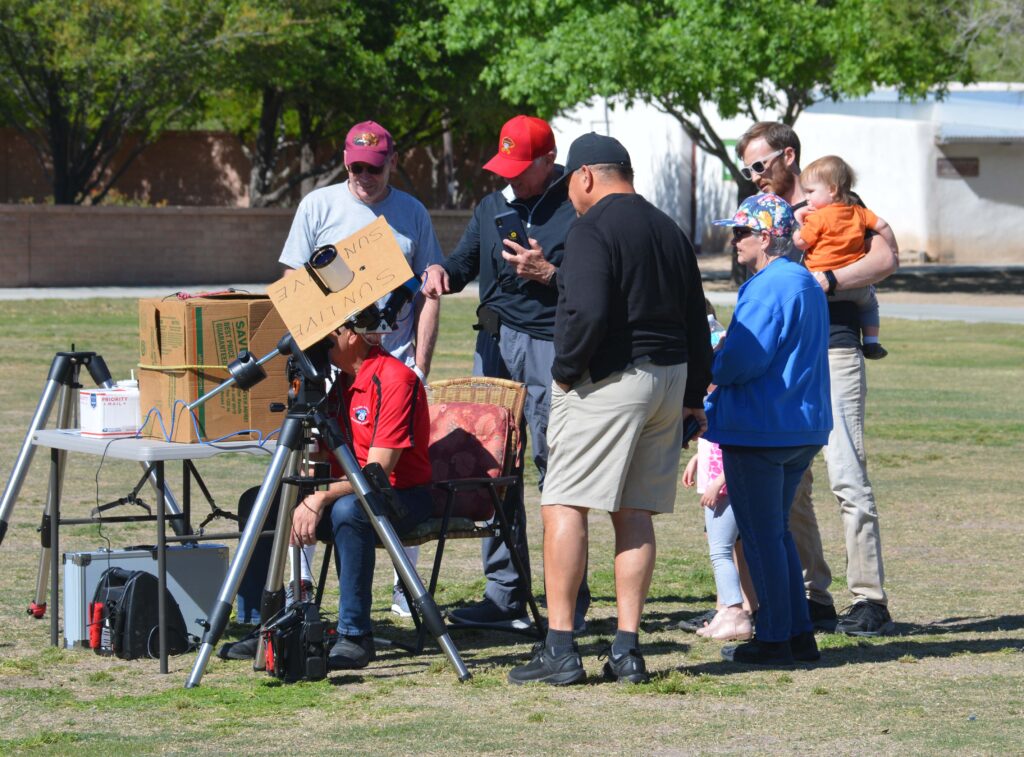
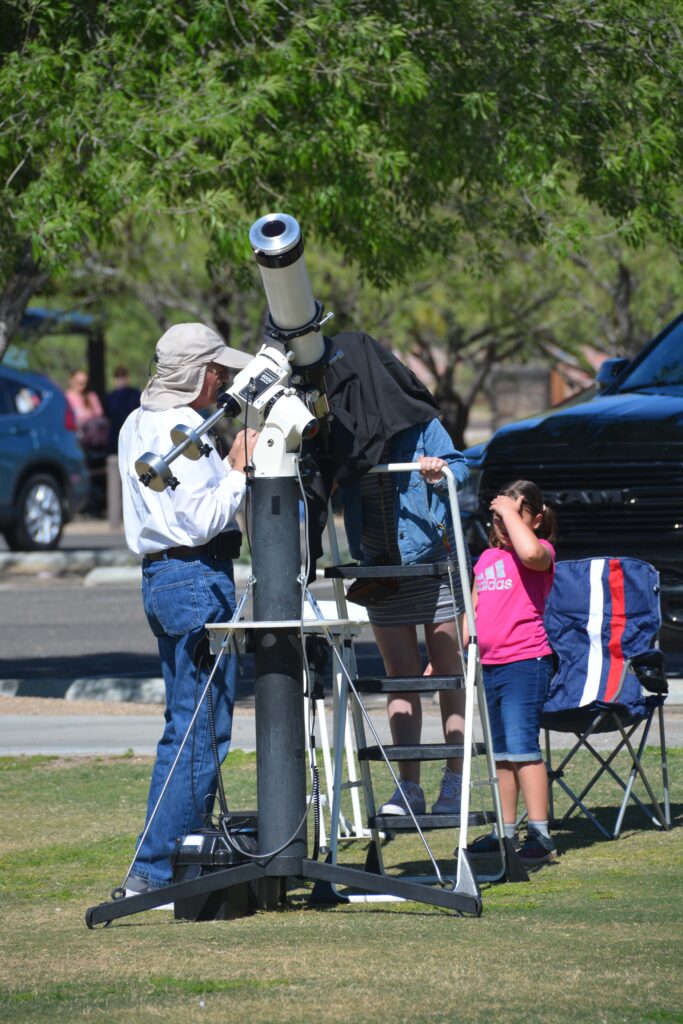
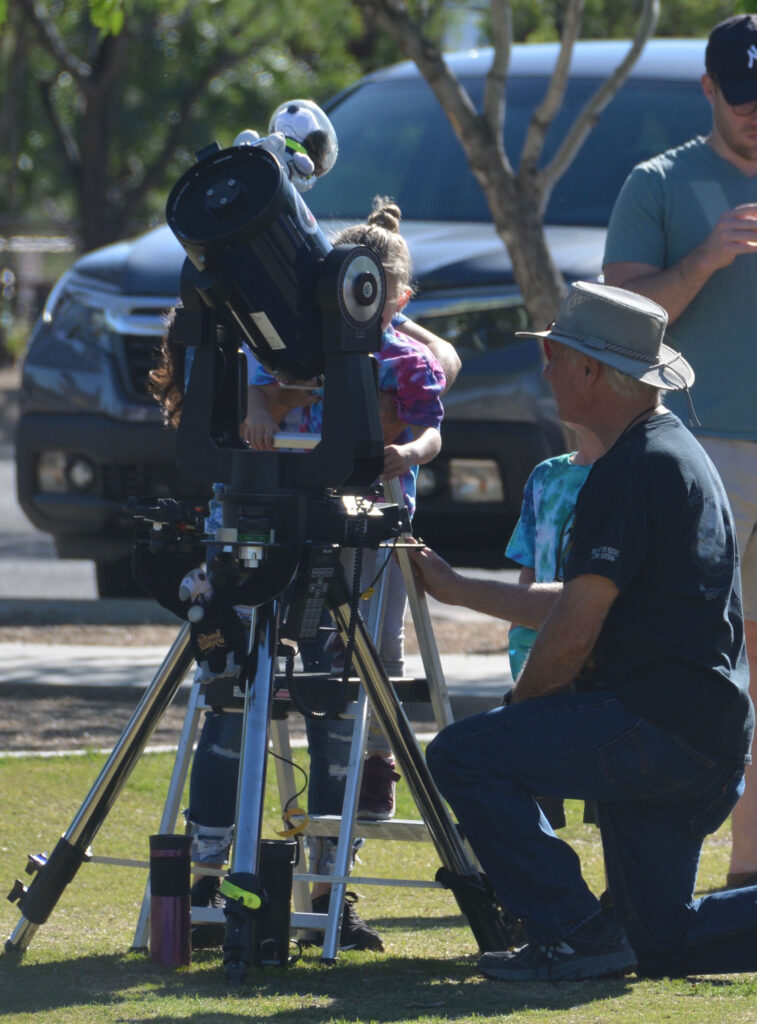
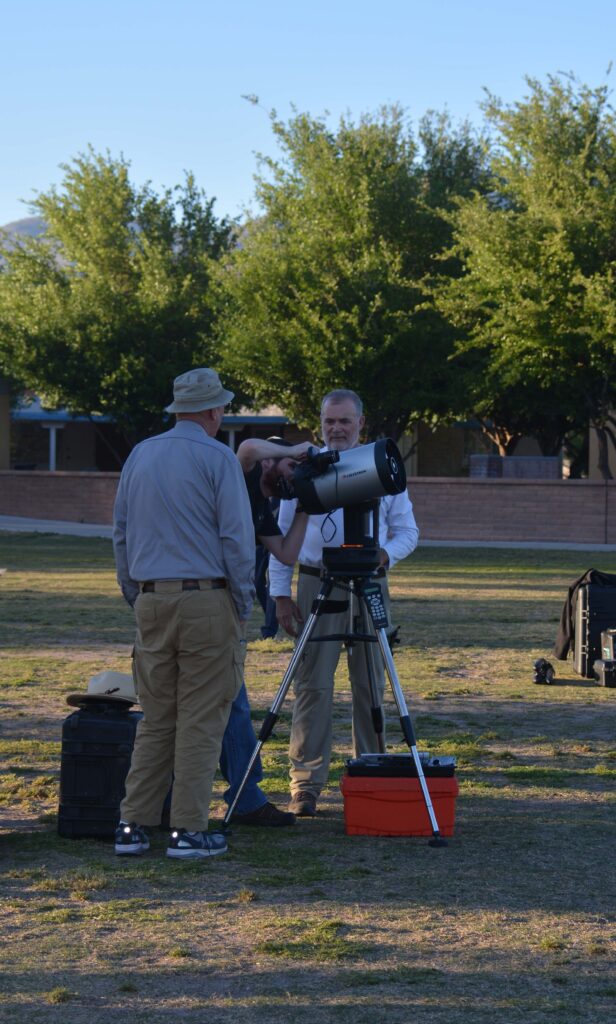
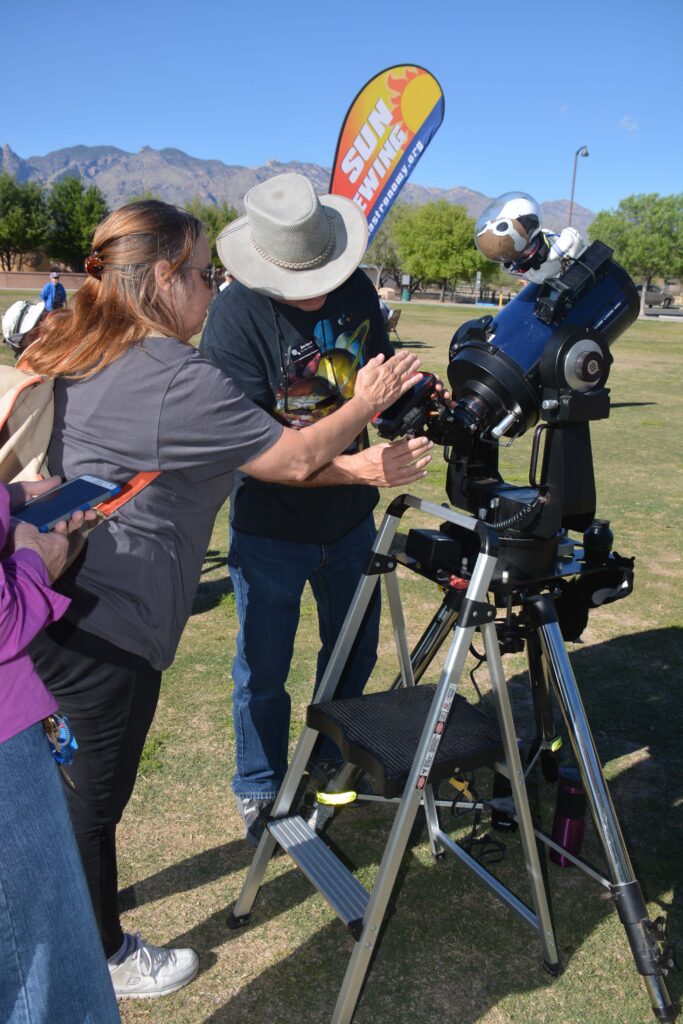
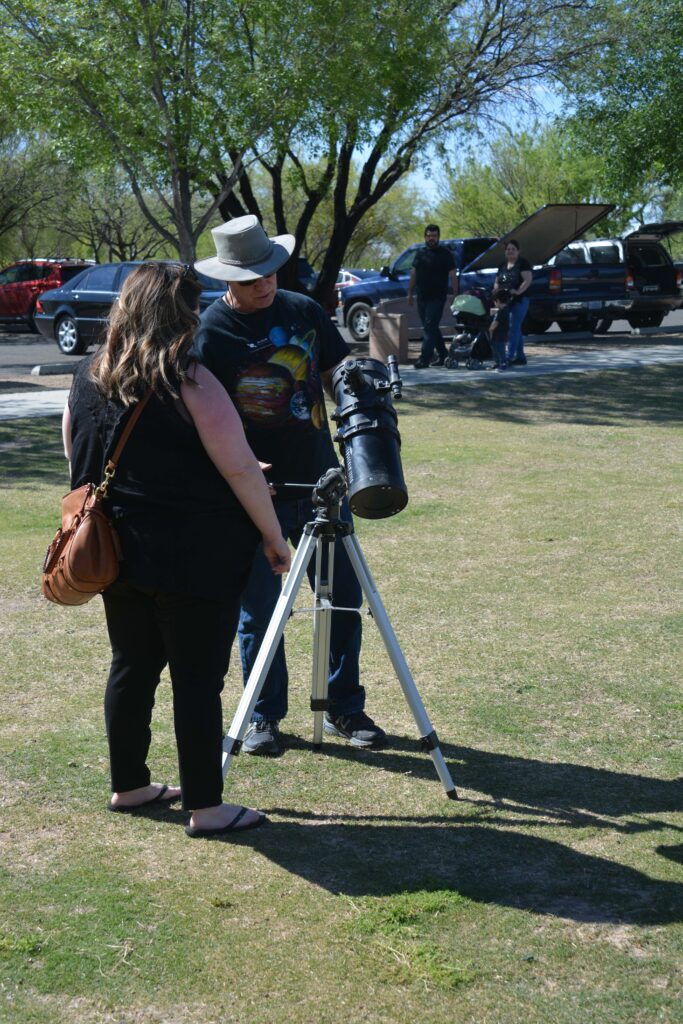
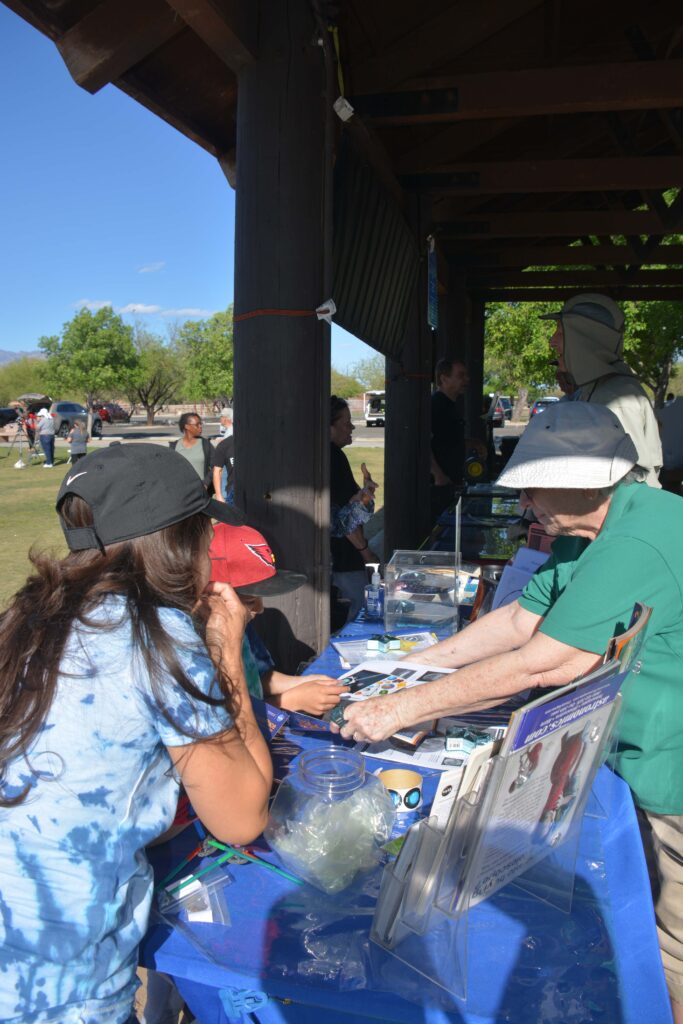
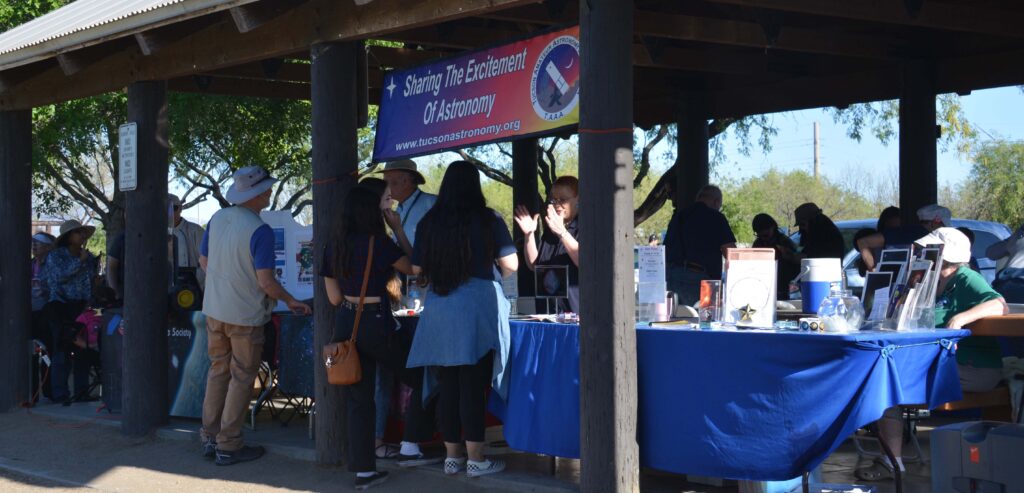
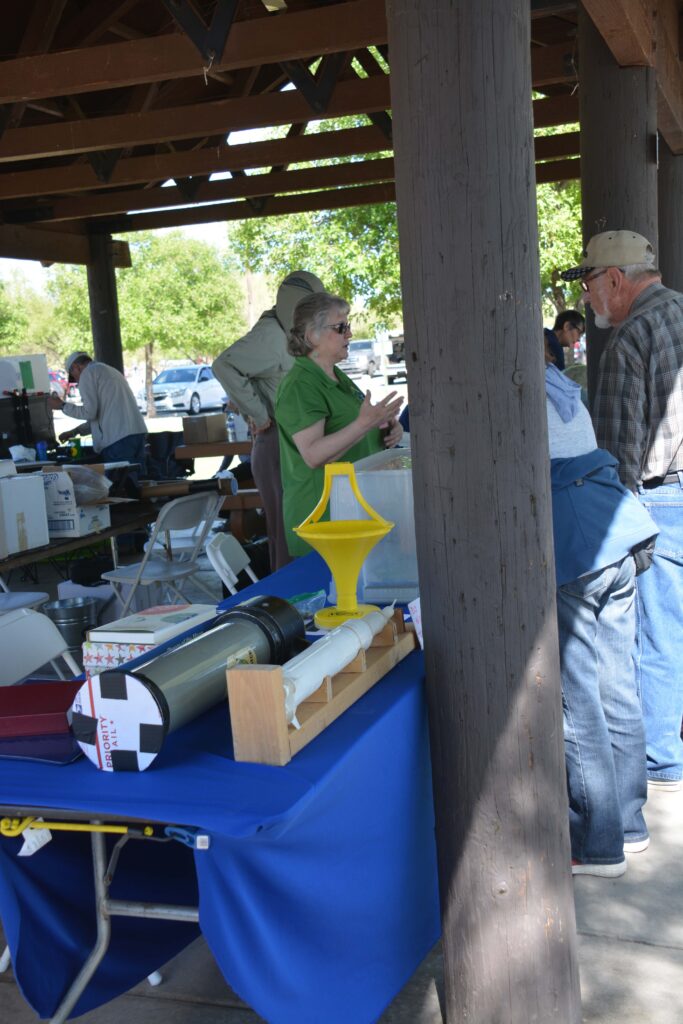
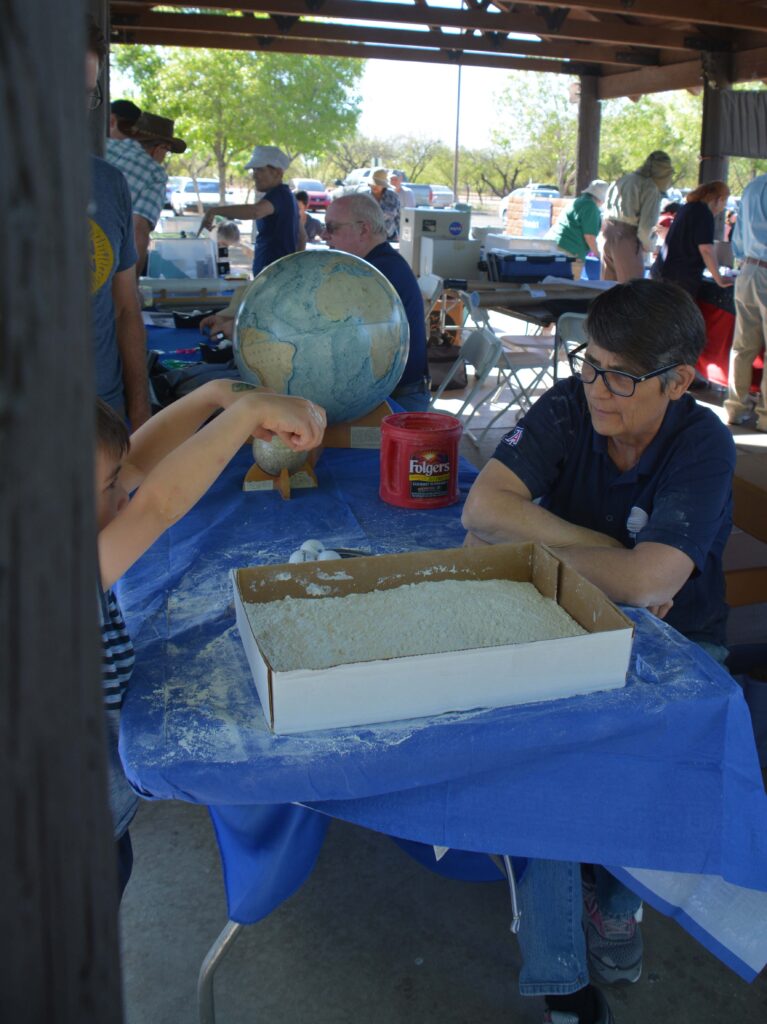
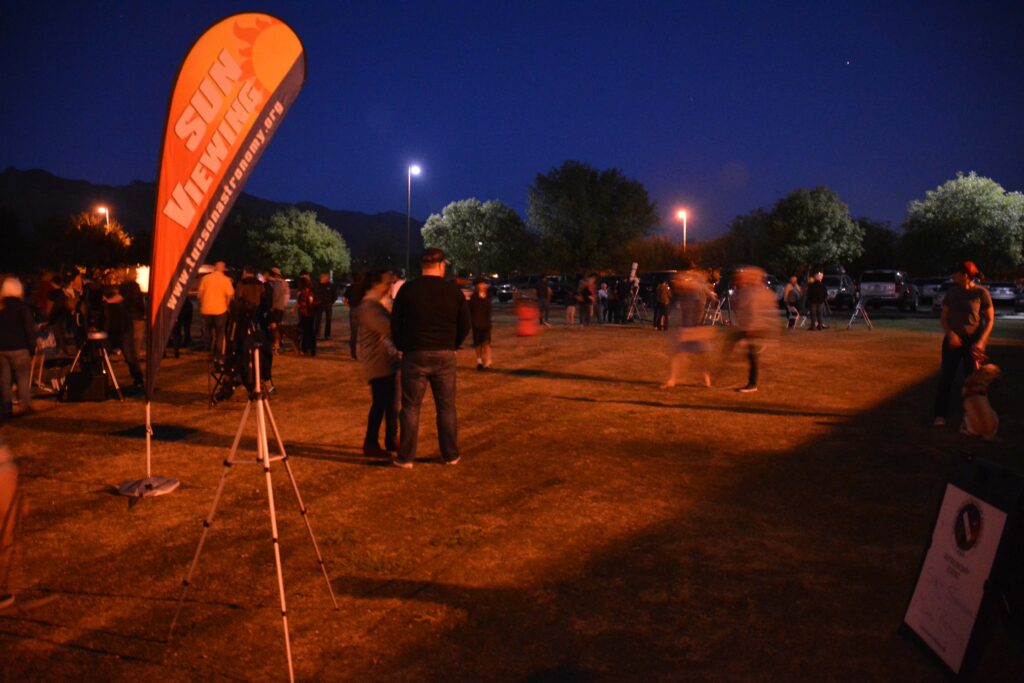
TAAA invites you to an evening of star gazing at Saguaro National Park – West
Located on the far West side of town on the other side of the Tucson mountains, this location has very dark skies from horizon to horizon.
Event is put on by Saguaro NP and the IDA (International Dark-Sky Association) to promote International Dark Sky Week.
An introductory talk will be given at 7pm.
The TAAA will have several Telescopes set up to view Stars, Nebula’s, Galaxies, Planets and more starting at 7:30pm!
The event is free and open to the public, but NPS admission fees may apply.
WEATHER DEPENDENT. Follow the event here for any weather updates or changes.